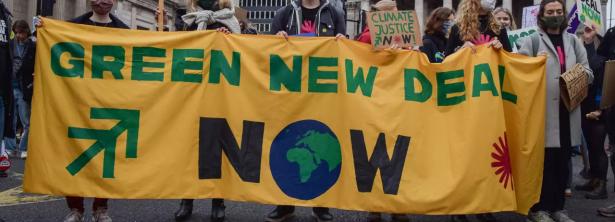2021 was a year marked by destruction, frustration, and perplexity. The pandemic killed more people in 2021 than in 2020, while also deepening inequality and worsening living conditions for poor people across the world; Trump supporters invaded Capitol Hill; the Taliban returned to power in Afghanistan; democracy continued to backslide across the world; supply chains faltered; the global refugee crisis continued with unabated force; and countries kept failing the climate crisis challenge.
2021 also offered us a ray of hope. Neofascist attempts by Trump and his allies to overturn the 2020 presidential election failed; billions of people were vaccinated; activists scored some significant victories for conservation and climate; and Latin America’s politics made a decisive turn to the left.
What the new year will bring to the world depends on a myriad of action-outcome contingencies that sometimes are even difficult to imagine, let alone predict. However, what we do know is that transformative change requires collective effort. Only through determined, long-term, energetic efforts can we hope to make the world a better place. And that, as far as the vision of the political left is concerned, requires strategic unity, especially on the climate front.
The left remains deeply divided across the world. True, the left has a long history of failing to keep its ranks together, which is not the case with the rightist and reactionary forces. Yet, this is no time to engage in battles over ideological purity. We need a United Left Front. In the age of neoliberalism and global warming, progressive forces need to mobilize behind a shared vision of democracy, equality, justice, security, and sustainability. Issues of race, class, gender and the environment must be structured around the vision of a society beyond capitalism and with an understanding that socialism is about democratic participation, human dignity, and freedom.
To be sure, the challenges ahead are daunting. We have to deal with massive inequality, authoritarianism, systemic racism, widespread environmental destruction, and climate breakdown. Moreover, there is no magic formula for tackling all of these problems simultaneously. But there are good reasons to believe that an effective strategy for dealing with the climate crisis can also tackle economic inequality, racism, and authoritarianism.
The global Green New Deal is a sweeping plan to shift away from dirty fossil fuels towards clean, renewable energy sources. Its implementation requires international cooperation, yet both the know-how and the financial resources are available to create a green economy which will keep the global temperature rise well below 2 degrees Celsius. But as if saving the planet is not enough, a global Green New Deal will also create more than 24 million green jobs, according to the International Labour Organization.
A study at the renowned Political Economy Research Institute (PERI) at the University of Massachusetts at Amherst found that every $1 million dollars shifted from fossil fuels to green energy results in a net increase of 5 jobs. PERI researchers have also produced specific studies that develop just transition programs, which are absolutely essential for the successful implementation of the green economy project.
A global Green New Deal will not merely expand job training for skilled workers, but will also revitalize the role of trade unions, shrink income inequality and do away with environmental racism since poor air and water quality affect disproportionally racial minorities.
Finally, it is quite conceivable that stronger, fairer economic growth, combined with a just transition, will contain the spread of authoritarianism. People across the world are dissatisfied with the functioning of society and politics in the age of neoliberalism. The social-psychological effects of neoliberalism haven’t yet been widely studied, but they could very well be related to the apparently inexplicable support granted to authoritarian rulers by a large segment of the citizenry across the world.
The climate crisis is the greatest challenge humanity has ever faced. This fact alone should be sufficient to bring about the formation of a United Front Left in the second year of the third decade of this century. Environmental and labor movements need to join forces by embracing the global Green New Deal. Climate activists need to speak to coal miners because both sides are facing a common challenge: survival.
We have just 12 years to limit a climate catastrophe, according to a much publicized United Nations report.
The global Green New Deal is possible. And it can indeed pave the way for the formation of a United Front Left. After all, we have a world to win.
C.J. Polychroniou is a political economist/political scientist who has taught and worked in numerous universities and research centers in Europe and the United States. His latest books are The Precipice: Neoliberalism, the Pandemic and the Urgent Need for Social Change (A collection of interviews with Noam Chomsky; Haymarket Books, 2021), and Economics and the Left: Interviews with Progressive Economists (Verso, 2021).


Spread the word